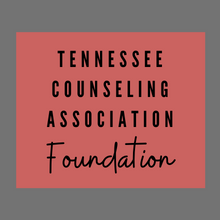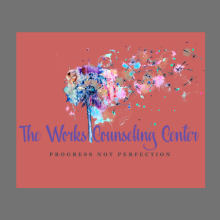
Welcome to the TCA Blog! As the new Publications Chair, I plan to contribute to and help curate the monthly entries found here. A bit about me: I am the program coordinator for the graduate program in counseling at the University of Tennessee at Martin. While I have been in higher education for 21 years, I also was a school counselor for 3 years, and afterward the clinical director of a residential facility for violent juvenile offenders in Memphis for 4 years. My professional life has been enriched by this mix of higher education, school counseling, and clinical work.
What I hope to do is to encourage all of our members to feel comfortable sending in submissions. Yes, that is a bit selfish…less work for me. But, I also envision the blog to be a place where commentary, insight, and opinion can be shared in a safe place. Our membership is diverse professionally and personally. Each of us has a perspective to share, a story to tell. An example of this is Andrew Arehart’s description of attending the TCA Annual Conference for the first time. I appreciated reading his perspective and the chance to consider conference attendance from a different point of view. I was particularly moved by Derrick Shepards’ recent post. It was personal and universal, a challenging commentary that sparked introspection. If this is also the type of blog you prefer I hope you visit this site frequently, and, of course, contribute your own thoughts.
Slouching Towards Empathy
I’m tired. Worn out. Like I paddled out into the tranquil Gulf for a relaxing swim and, as I turned to wave to the family on shore, had the full force of Hurricane Sally smack me in the back of the head. But I’m not alone. The 2020 memes are everywhere, each one highlighting the stress and pain being felt across the country and the world. We can’t avoid COVID-19, rampaging fires, hurricanes, social unrest, political folly. As a result our society seems to be shredded into increasingly distinct pieces. Us and them. Good and bad. Right and wrong. Choose a side. The tension is palpable, heavy in the air. And the weight of it adds to my fatigue.
As I considered the intense emotions felt by people from every side of the political/social/community issues straining our world, it occurred to me: where has empathy gone?
Empathy is the lifeblood of counseling. It infuses each session with the warmth, acceptance and understanding necessary to develop the counseling relationship. This is the first building block toward client change. As a counselor educator I preach its value to my students and urge them to understand their client at a deeper level, to walk in the client’s shoes and feel what the client feels.
I turned to my overstuffed bookcase and dusted off my copy of Carl Rogers’ “Client-Centered Therapy”. Rogers writes: “…it is the counselor’s function to assume, in so far as he is able, the internal frame of reference to the client, to perceive the world as the client sees it, to perceive the client himself as he is seen by himself, to lay aside all perceptions from the external frame of reference while doing so, and to communicate something of this empathic understanding to the client.”
Considering empathy’s place in our world today, here he was talking directly to me, and to you: “…there appears to be a strong trend toward…bringing to modern man an increased peace of mind. It would seem that our culture has grown less homogenous, it gives less support to the individual…Each man must resolve within himself issues for which his society previously took full responsibility.” Yes, that was written for then, for now, for all time.
Why does it seem that so few people are capable of empathy in the world we see in the news today? Everyone seems on alert, and quick to attack the other side. Compromise is more than an illusion, it’s a sign of weakness. The battle lines are drawn and empathy has no place in this type of war.
Should our leaders be modeling empathy for us? Could this help to set the example for us all, and blur those lines of division? Rogers gives us some guidance here as well: “One hypothesis would be that group members identify with their leader and in the process internalize some of his attitudes and behavioral patterns. This would mean that group members may gradually begin to behave toward others in the group in much the same way as the leader behaves toward them.” It was reassuring to read that and wag a finger at the national leaders I don’t agree with, hoping that kinetic energy was felt miles away in their souls, stirring them toward guilt and change. But was this missing the point a bit? Is empathy a hammer to be used to bludgeon the other side?
I feel this tension and struggle on a personal level. I have no answers. But I also wonder about this issue from a professional level. Counselors hold an optimistic view toward mankind, rooted in the belief that change is possible. How do counselors maintain their own empathy, while it seems to be eroding in the public and private faces of our society? What is our responsibility to step up into that leadership role and model empathy?
Recently I had an issue to resolve with two students enrolled in one of my graduate counseling courses. They were paired together in order to complete a series of counseling role plays and needed to negotiate times to meet. There was a bit of confusion about the due date of the first assignment, a difficulty in being able to communicate with each other, one feeling pressured and rushed, the other still reeling from adjusting to graduate school and unsure how things worked. One student panicked, completed the assignment with another person, leaving the other partner alone to figure things out on her own. Both were angry. Both felt disrespected. As I met with them and talked about what happened and why, I brought up the larger issue here: the counselor disposition of empathy. Could they understand the experience of their partner? Here I was impacting my sliver of the world in the only way I could, modeling (hopefully) what empathy looks like and encouraging it in my students. Passing it on, not on a national level, but a professional (and personal) one.
In 1919 W.B. Yeats wrote the poem “Second Coming” as a reflection of the state of the world at that time, in the aftermath of WWI, the beginning of the Irish Revolution, and the continuing effects of the 1919 Spanish flu epidemic. The world was emerging from one catastrophic event only to be confronted with others. It was a time of uncertainty, fear, and doubt flavored by the elation of the ending of the most brutal war the world had seen. He used the phrase “slouching towards Bethlehem” to describe the crippled, labored journey of man toward a second life. A life of renewal and hope.
We may see some similarities between that challenging time a century ago and our current one. And here we are: a society slouching toward empathy.









